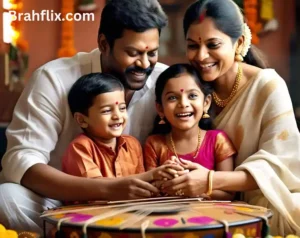Introduction
Understanding the concept of Premakante Family Ki Viluva Iche Vadu involves exploring its meaning, implications, and cultural relevance. This term, rooted in family dynamics and societal values, encompasses a range of issues related to familial roles, responsibilities, and social status. This comprehensive guide will explore the various facets of Premakante Family Ki Viluva Iche Vadu, offering insights into its significance and impact.
Key Takeaways:
- Explanation of the term Premakante Family Ki Viluva Iche Vadu and its cultural context.
- The impact of family dynamics on societal roles and responsibilities.
- Analysis of traditional and modern perspectives on family value systems.
- Frequently asked questions about family roles and societal expectations.
What Does Premakante Family Ki Viluva Iche Vadu Mean?
Premakante Family Ki Viluva Iche Vadu is a term from South Asian culture, particularly within Indian family systems. It refers to the idea of evaluating or determining the worth or value of a family based on certain criteria, often including social standing, economic stability, and familial responsibilities.
Cultural and Historical Contex
In traditional South Asian societies, family reputation and status play a crucial role in defining individual roles and responsibilities. The concept of Premakante Family Ki Viluva Iche Vadu reflects these cultural values by emphasizing how family background influences personal and social worth.
Key Components
- Family Status: How social and economic standing impacts familial value.
- Roles and Responsibilities: The expectations placed on family members based on their position within the family structure.
- Social Perception: The way families are viewed in the broader community based on their perceived value.
Historical Evolution of Family Values in South Asian Cultures
Family values in South Asian cultures have evolved significantly over time. This section explores the historical development of these values and their impact on contemporary family dynamics.
Traditional Family Structures
Historically, South Asian families were often extended, with multiple generations living together under one roof. This structure reinforced hierarchical relationships and defined roles within the family unit.
Key Characteristics of Traditional Families:
- Patriarchal Leadership: The eldest male often held the most authority.
- Collective Decision-Making: Family decisions were made collectively, with significant input from elders.
- Social Obligations: Strong emphasis on fulfilling social and familial duties.
Modern Changes
In recent decades, South Asian family structures have shifted towards nuclear families, with increasing individualism and changing gender roles. These changes have influenced how family value is perceived and evaluated.
Contemporary Trends:
- Nuclear Families: Smaller family units with fewer generational overlaps.
- Gender Equality: Evolving roles for women and shifting expectations for men.
- Urbanization and Globalization: Impact of modern lifestyles and global influences on family dynamics.
The Role of Family in Personal Identity and Social Status
Family plays a crucial role in shaping personal identity and social status, particularly in South Asian societies. This section examines how family influences individual and collective identity.
Personal Identity
An individual’s identity is often closely linked to their family background. Family reputation and status can impact self-esteem, personal achievements, and social interactions.
- Family Background: Influences personal values, beliefs, and social behavior.
- Cultural Heritage: Shapes one’s sense of identity and connection to cultural practices.
Social Status
Social status is frequently derived from family standing and achievements. Families with high social or economic status often enjoy greater respect and influence within their communities.
- Economic Success: Families with financial stability are often viewed more favorably.
- Educational Attainment: High levels of education within a family can enhance social status.
Impact of Family Values on Gender Roles
Family values significantly influence gender roles within South Asian societies. This section explores how traditional and modern family values shape expectations and responsibilities for different genders.
Traditional Gender Roles
Historically, South Asian family values have defined distinct roles for men and women. These roles were often based on patriarchal norms and cultural expectations.
- Men: Typically expected to be the primary breadwinners and decision-makers.
- Women: Traditionally responsible for domestic duties and child-rearing.
Evolving Gender Expectations
Modern shifts have led to changing gender roles within families. Increased gender equality has resulted in more fluid roles and responsibilities.
- Women’s Empowerment: Greater participation of women in education and the workforce.
- Shared Responsibilities: Growing trend of shared household and parenting responsibilities.
Evaluating Family Worth in Modern Context
In the modern context, the evaluation of family worth has evolved beyond traditional criteria. This section explores contemporary factors influencing how families are perceived.
Social and Economic Indicators
- Financial Stability: Economic resources and financial success are key indicators of family worth.
- Educational Achievement: Higher levels of education within a family enhance perceived value.
- Professional Success: Career achievements and professional status contribute to family reputation.
Cultural and Social Contributions
- Community Involvement: Families that actively contribute to their communities are often highly regarded.
- Cultural Preservation: Maintaining cultural traditions and practices can positively influence family reputation.
Case Studies: Family Worth in Different Contexts
Examining real-life case studies can provide a deeper understanding of how family worth is evaluated across different scenarios. This section includes examples from various contexts.
Case Study 1: Traditional vs. Modern Evaluation
A comparison between families that adhere to traditional values versus those embracing modern perspectives. This includes differences in how each type is perceived and valued within their communities.
Case Study 2: Socioeconomic Factors
An analysis of families from varying socioeconomic backgrounds and how financial stability impacts their perceived worth.
Case Study 3: Gender Role Shifts
Exploration of families where traditional gender roles have shifted significantly, and the impact on family dynamics and social perception.
Best Practices for Evaluating and Enhancing Family Worth
To improve and manage family worth effectively, families can adopt certain practices. This section offers recommendations and strategies.
Building Strong Family Foundations
- Communication: Open and honest communication strengthens family bonds and helps address issues proactively.
- Shared Goals: Establishing common goals and values can enhance family cohesion and reputation.
Contributing to the Community
Active participation in community service and cultural activities can positively influence how a family is perceived.
Continuous Learning and Adaptation
Embracing change and adapting to evolving social norms can help families maintain relevance and positive status.
FAQs About Premakante Family Ki Viluva Iche Vadu
1. What does Premakante Family Ki Viluva Iche Vadu specifically refer to?
The term refers to the evaluation or assessment of a family’s value based on social, economic, and cultural factors. It involves understanding how these elements influence the family’s standing and reputation.
2. How have family values changed in South Asian cultures over time?
Family values have shifted from traditional extended family structures to modern nuclear families, with evolving gender roles and increasing individualism impacting societal expectations.
3. What factors influence the modern evaluation of family worth?
Modern evaluations consider socioeconomic indicators such as financial stability, educational attainment, and professional success, as well as contributions to the community and cultural preservation.
4. How can families enhance their perceived worth in contemporary society?
Families can enhance their perceived worth by fostering strong internal relationships, actively participating in community service, and adapting to modern social norms.
5. Are there notable examples of how family worth is evaluated differently across cultures?
Yes, case studies show that family worth can be evaluated differently based on cultural practices, socioeconomic status, and evolving gender roles. Comparative analyses provide insights into these variations.
Conclusion
Premakante Family Ki Viluva Iche Vadu encompasses a complex evaluation of family worth that integrates social, economic, and cultural factors. By understanding the historical evolution, contemporary implications, and best practices for managing family value, one can gain a deeper appreciation of its significance in both traditional and modern contexts.
How does your family’s value and reputation align with the concepts discussed? Share your thoughts and experiences in the comments below, and explore our other blogs for further insights into family dynamics and cultural practices.